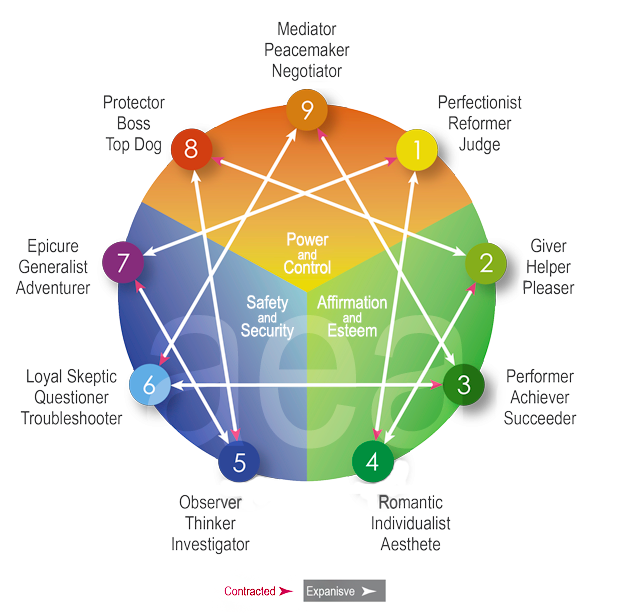Perfectionism Could Be Your Greatest Weakness
By Focusing Solely On A Destination, You May Miss The Journey
“I’m a perfectionist.”
This may be one of the most common responses to the interview question “What is your biggest weakness?”. I don’t blame anyone who wants to gag at what could be perceived as an attempt to choose a weakness that could be a simultaneous strength. I think people who use this description consider it to be a positive-weakness. Unfortunately, they’re wrong.
FACE EVERYTHING AND RISE
I have written about being a perfectionist in other content, but I would say I didn’t fully understand this weakness until I had to come face-to-face with my personal responsibility in failed relationships. Pain, suffering, and a deep desire to understand how to grow past difficult relational experiences drove me to dig deep into what I could change. I can’t change other people, but I can work on myself.
To embark on a sincere inside-out wellbeing journey, the first steps are to be vulnerable and open to change. In my experience, pain or challenges are the catalysts to an open mind and heart.
If you’ve found yourself in the midst of a trial, the best way to get to the other side and soak all of the goodness out of it is to face it head on.
F.E.A.R. has two meanings:
Forget Everything And Run
or
Face Everything And Rise
The choice is yours.
PERFECTIONISM PLAGUE
It’s understandable how this personality has been categorized as a positive trait in the work culture, and any negatives have been primarily seen as weighing on the individual. The positives can shadow the negatives in a work culture that is focused on results. Harvard Business Review affirms that perfectionism consistently produces several “beneficial” outcomes for businesses including: perfectionists are motivated on the job, work longer hours, and can be more engaged at work.
However, perfectionists are also more likely to set inflexible and excessively high standards, they evaluate their work overly critically and hold an all-or-nothing mindset about their performance, and they believe their self-worth is dependent on perfection. Harvard's results also indicate that perfectionism is equally related to numerous “detrimental” work and non-work outcomes, which include burnout, stress, workaholism, anxiety, and depression. I outlined many of these in Don’t be Swindled by Relentlessness and Impostor Syndrome. Ultimately, what weighs on the individual will weigh on the business.
Due to the positive reinforcements in the work culture we have grown accustomed to, many entrepreneurs and business leaders have perfectionist tendencies. Below is a list of tendencies - I have seen some of these in myself and I have seen some of these in others who are leaders of organizations. By being empowered with this understanding, there is an ability to change and grow beyond these crippling traits.
“All-or-Nothing” Thinking
Perfectionists accept nothing less than perfection. "Almost perfect" is seen as failure.
Critical Eye
Perfectionists spot tiny mistakes and imperfections in their work and in themselves, as well as in others and their work. They hone in on these imperfections and have trouble seeing anything else, and they’re more judgmental and hard on themselves and on others when "failure" does occur.
“Push” vs. “Pull”
Perfectionists tend to be pushed toward their goals by a fear of not reaching them, and they see anything less than perfect as a failure.
Unrealistic Standards
Perfectionists set their initial goals out of reach.
Focus on Results
Perfectionists see the goal and nothing else. They’re so concerned about the destination and avoiding the dreaded failure that they can’t enjoy the journey.
Depressed by Unmet Goals
Perfectionists tend to wallow in negative feelings when their high expectations aren’t met.
Fear of Failure
Perfectionists place so much stock in results and become so disappointed by anything less than perfection that failure becomes a very scary prospect.
Procrastination
Fearing failure as they do, perfectionists will sometimes worry so much about doing something imperfectly that they become immobilized and fail to do anything at all.
Defensiveness
Perfectionists tend to take constructive criticism defensively.
Low Self-Esteem
Perfectionists tend to be very self-critical and unhappy and suffer from low self-esteem. They can also be lonely or isolated as their critical nature and rigidity can push others away as well.
ARE YOU A PERFECTIONIST?
If you still can’t determine whether you’re a perfectionist or just dabbling in some of these tendencies, there are online resources to test your perfectionism. I have added all of these to my Resources page for future reference.
Here is a quick quiz to give you an answer fast. I was positive for perfectionists tendencies as suspected.
I would also recommend taking this Enneagram test to get a fuller look at your personality in relation to where perfectionism fits into a more holistic personality.
The Enneagram is a model of personality in which there are nine personality types, related to each other according to the geometry of the Enneagram figure below.


Here are my results from this week. My highest score was #8: Protector. #3: Performer and #1: Perfectionist were up there, too.
TWO SUBTYPES OF PERFECTIONISTS
Research has identified two distinct but related versions of perfectionism. The first, is called excellence-seeking perfectionism, which involves demanding excessively high standards for themselves as well as others. The second is called failure-avoiding perfectionism, which involves an obsessive concern with failure to reach high standards.
The benefits of perfectionism are stronger for excellence-seeking perfectionism than failure-avoiding perfectionism. Alternatively, the “detrimental” effects of perfectionism were stronger for failure-avoiding perfectionism, but were still present for excellence-seeking perfectionism.
This research also found that performance and perfectionism were not related to each other. Perfectionists are not better or worse performers than non-perfectionists. Even excellence-seeking perfectionists were not better performers. Possibly this is due to perfectionists spending too much time perfecting certain work while neglecting others. Perhaps any advantages gained with perfectionism are washed away by the detrimental effects of those same tendencies.
HOW TO MANAGE
Understanding the detriments of perfectionism does not mean that these individuals should be looked at as weak or bad players. When working with a perfectionist, the best method is to embrace the benefits and help them to work on the consequences of their tendencies. It wouldn’t serve to tie a perfectionist to performance goals because these individuals are already holding themselves to an extreme standard. The more effective long term approach should be to help them focus on non-work activities and wellbeing goals. By helping them to focus on their health and overall wellbeing, they can learn to adjust their priorities and manage the risk for stress and burnout. Clearly communicated expectations and visible tolerance for mistakes and challenges will help perfectionists believe they can lower the pressure they put on themselves.
As a leader in business, learning how to better manage perfectionism should be a priority. A recent study of 42,000 young people found that perfectionism has risen over the last 27 years and recent generations of young people perceive that others are more demanding of them, are more demanding of others, and are more demanding of themselves. Understanding that the pressure to be perfect is global and prominent should put this issue in the forefront of corporate wellness programs and strategies.
Here are some recommendations for managing perfectionism as a leader in an organization (source):
Appreciate the positives while recognizing the negatives.
Give them the right job where their fastidiousness will be appreciated.
Increase their self-awareness and show them that letting go of perfect is a step toward achieving their big-picture goals.
Find mentors who are reformed perfectionists themselves who can serve as role models.
Shy away from giving negative feedback — instead ask for the perfectionist’s advice on how to deliver input effectively for them.
SUMMATION
As a recovering perfectionist, I can attest to the relief of simply recognizing the weakness and addressing it proactively. For me, once I realized my goal is not to be perfect but rather to be effective for others through a sincere and vulnerable wellbeing journey, my priorities shifted from myself to others. The fear that created a perfectionist personality was a survival technique that I no longer need. I’ll take the benefits and consciously work on the issues, and that process began with opening up to others.
If you see some of these perfectionist traits in yourself, don’t despair. As in most growth opportunities, acknowledging the issue is a very important first step in a wellbeing journey. Once you see the issue, you have the opportunity to build a more easygoing nature and achieve the inner peace and real success that comes from overcoming perfectionism.
By seeing the benefits in the journey and not focusing only on the result, you are already on your way to a higher quality of life and work. Isn’t that the goal of a perfectionist underneath all of the performance? To be valued and appreciated? When we can recognize that there is no such thing as a perfect person or journey, we can free ourselves to appreciate and value all of the imperfect moments that add up to a journey well-lived.
SOURCES
https://psycnet.apa.org/record/2018-27801-001
https://www.sciencedirect.com/science/article/abs/pii/S0191886901002021
https://hbr.org/2011/10/how-to-manage-a-perfectionist.html
https://www.verywellmind.com/quiz-are-you-a-perfectionist-4006910?quizResult=6d80b3fa
https://www.verywellmind.com/what-is-perfectionism-2510538
https://hbr.org/2018/12/the-pros-and-cons-of-perfectionism-according-to-research
https://www.truity.com/test/enneagram-personality-test







